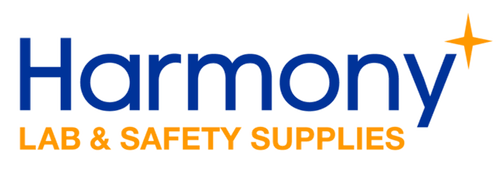Food Services Supplies – An Overview
Whether you operate a restaurant, ghost kitchen, or sell your homemade goods online, maintaining the highest level of food safety practices is critical to the success of your business.
At Harmony Lab & Safety Supplies, you will find all the disposable apparel you need to comply with regulations and ensure a pristine work environment. Harmony’s product experts have over a decade of experience finding solutions that are FDA and USDA-compliant.
Food Grade Disposables:
- Arm Sleeves
- Bouffant Cap
- Beard Covers
- Boot Covers
- Food Service Wipes
- Non-Slip Shoe Covers
- Nylon Hairnets
Food Grade Gloves:
- Disposable Gloves
- Nitrile Gloves
- Vinyl Gloves
- Plastic Food Service Gloves
- Green Nitrile Flock Lined Glove
Food Processing Safety:
- 3M Quat Disinfectant
- Cut Resistant Gloves
- Medical Swabs
- Hard Hats
- Hearing Protection
- Kevlar Arm Sleeves
- PVC Boots
- PVC Apron
- Eye Protection
Food Service Supplies
The quality of food processing in your facility largely depends on sanitation practices and Food Processing Supplies. In order to process safe food and reduce chemical and physical hazards in food processing, your staff must use disposable apparel. At Harmony, you will find solutions to stay in FDA and USDA compliance: bouffants, gloves, and beard nets help ensure a clean environment. We stock apparel and offer fast shipping and US customer support for your assistance. Implement good safety and hygiene practices with Harmony.
Food Safety Practices & Disposable Apparel
Foodborne illnesses have been receiving more media coverage recently. This has led to greater public awareness and we all need to increase food safety training levels for employees working in the food industry. This is essential for food safety and public health. It is not only a requirement to meet food safety regulations but also a responsibility towards end clients as well as the general safety of people.
Prevent food product contamination:
- Ensuring food workers have an understanding of basic food protection practices: First of all, if employees understand food protection practices, such as staying clean and disease free, it goes a long way to prevent product contamination. Something as basic as hand washing prevents a range of complicated food-borne illnesses. (Such as Salmonella typhi, Shigella species, Shiga toxin-producing E. coli, or hepatitis A virus.)
- Ensuring no unwanted debris in food: It is important to acknowledge that hair in food is one of the most common errors in the food industry. While it is a human mistake, hair is a potential source of microbiological and physical contamination. Wearing hairnets, beard covers and long-sleeved smocks are essential.
- Ensuring as minimal contamination as possible: It is not easy to completely eradicate contamination. This is because of microbes in the air that cannot be humanly prevented from entering food. However, employees can take key steps by wearing clean uniforms or other food service supplies. Keeping processing areas and utensils sanitized and not wear jewelry that may fall into food.
- Keeping the food area disease free: Employees with flu or a cold should stay home. Coming to work sick can expose others at work and may contaminate food, leading to potentially much bigger issues.
Fingernails must always be clean and cut, personal hygiene maintained, and any illness reported. It is essential to equip employees with the correct personal protection products including food handling gloves, hair nets, beard guards (beard nets/covers), and face masks. Employers in the food industry must ideally provide a thoughtful and comprehensive training program.
Here are a few things to remember when providing food safety training:
- Use of language
Employees may not share the same native tongue as the employer. Translate instructions, practices, processes, and procedures to language employees understand best. Explain the importance and benefits when you use disposable gloves during food handling. It is the employer’s responsibility to ensure that employees understand what is expected of them.
- Communication
Just like salary negotiations happen prior to employment, it is important to communicate proper and preferred hygiene practices at the same time. It is essential to be clear and precise. Wearing their hairnets and beard covers must be fully explained to the potential employee. It is best to lead by example and ensure that managers comply with all regulations.
- Consistency
A reaffirmation of the proper hygiene practices is essential with periodic training programs as well as innovative approaches such as displays of signs with pictures of good practices. Again, language plays a major role and context. Cater to the employee’s known language.
Lastly, use safe steps in food handling, cooking, and storage to prevent food-borne illness. You can’t always see, smell, or taste harmful bacteria that may cause illness. Keep food safety in mind for your employees, yourself, the consumer, and the general public.

